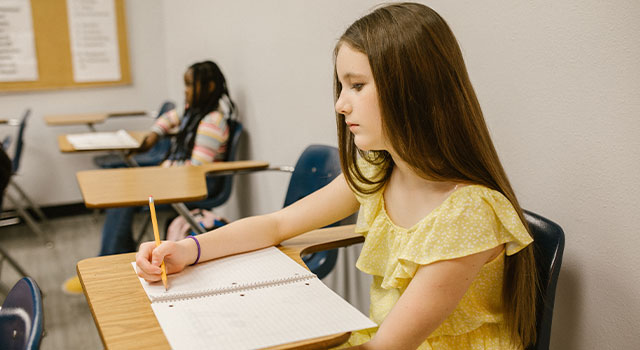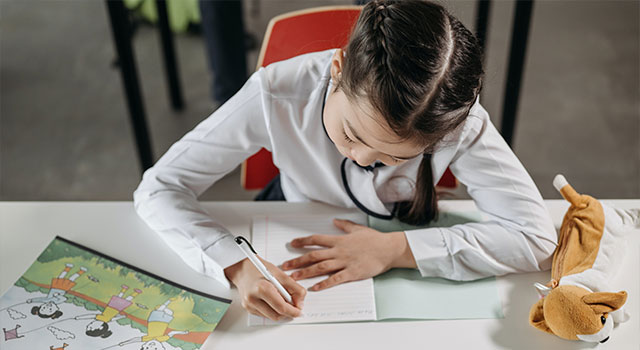
Patching for Lazy Eye & Other Methods
Amblyopia, commonly referred to as ‘lazy eye’, occurs when the brain and the eye are not working in perfect unison. This results in decreased vision in one eye that otherwise seems healthy.
While patching was traditionally the default treatment for amblyopia, other treatments have been clinically proven to provide optimum results and for several reasons
Certain exercises performed under the direction of a developmental optometrist are meant to teach the patient new visual skills in an engaging and motivating way until the learned skill becomes automatic. Not only is our program done at-home through a combination of minimal patching (20-30 minutes per day) exercises, computer games, and light therapy, but our techniques outweigh the benefits of just passively patching the one eye for hours at a time.
Why Not Just Use Traditional Eye Patching?
Traditionally, placing a patch (occlusion or penalization) over the better-seeing eye was the only method used to treat amblyopia. In theory, this treatment makes sense because it strengthens the weaker eye without interference from the other eye.
Unfortunately, training the brain and eyes to work together isn’t so simple. With patching, this passive process may have only limited results, while a more comprehensive program is meant to guide, teach and retrain the eyes and brain to work together with clear direction. For example, if you’re learning to ride a bicycle, you wouldn’t start with learning to ride a unicycle. You’d have someone guide and teach you on a bicycle, so you can learn the skills to navigate and ride the bike correctly. Your vision is multiple times more complex than the skills involved in bike-riding, and learning the subtle vision skills requires the expertise of an optometrist trained in developmental vision therapy.
Furthermore, another problem with patching is that children may resist wearing it, as it draws attention and may affect their confidence. Some practices will require a child to undergo patching for several hours a day which can be daunting for anyone. On the other hand, children who undergo a program with various tools are likely to experience a confidence boost as their visual skills are refined.
About Our Program
Dr. Wylie is a developmental optometrist with years of experience providing vision therapy and other techniques which are based on significant advances in the neuroscience of vision. While treating lazy eye may not require a typical vision therapy program, Vision Therapy can improve a patient’s visual abilities by enhancing eye coordination, depth perception and reduces suppression, where the brain inhibits blurred or double vision by ignoring the image of the weaker eye. Depending on the results of your functional visual evaluation at our practice, we can provide you with information about the various treatment options available.
Speak with Dr. Wylie from Advanced Eyecare & Therapies and discover how we can help you or your child with amblyopia.
Our practice serves patients from Spokane, Post Falls, Coeur d'Alene, and Sandpoint, Washington and surrounding communities.









